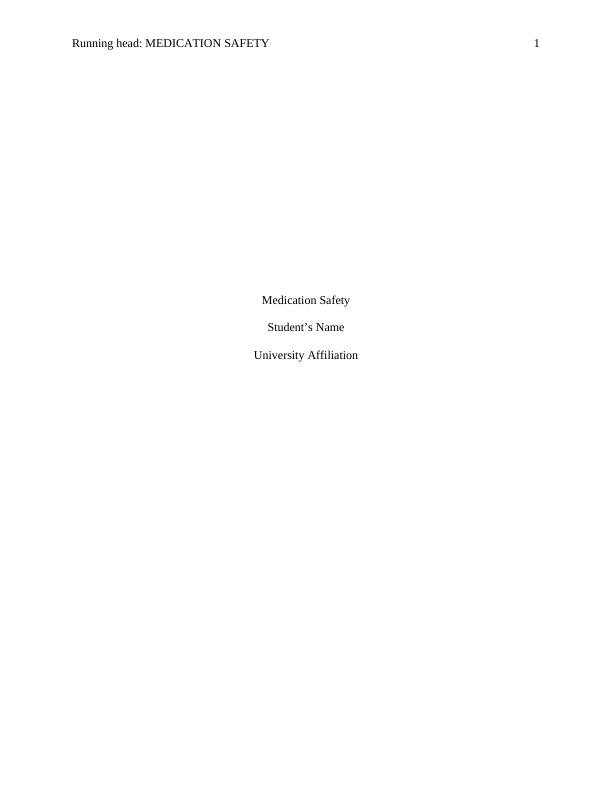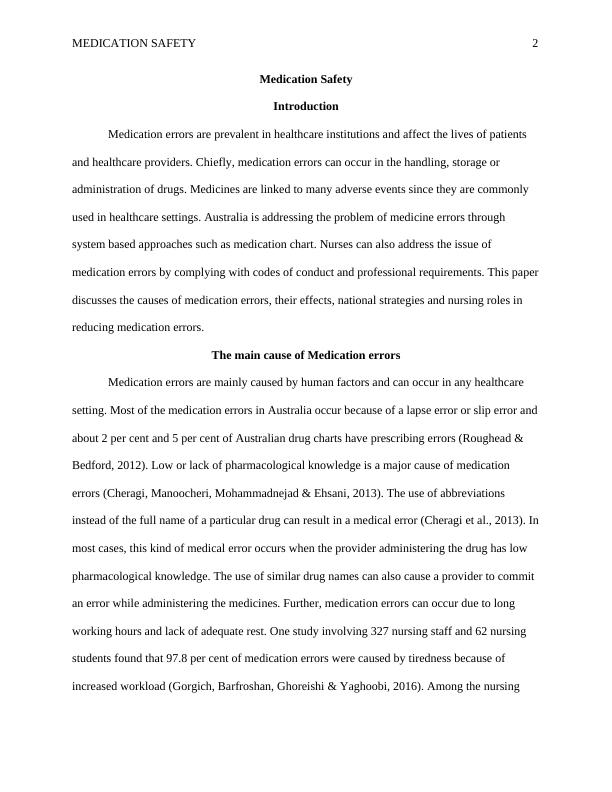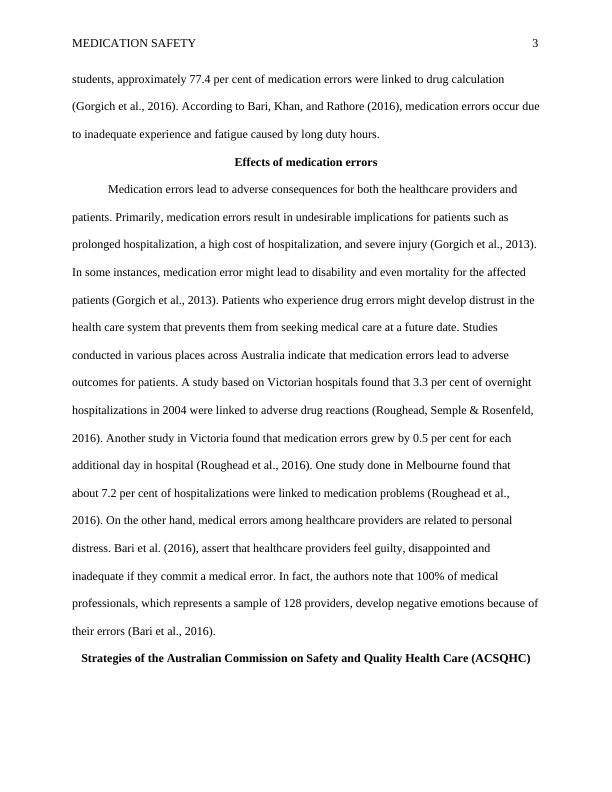Medication Safety: Causes, Effects, Strategies and Nursing Roles
7 Pages1518 Words139 Views
Added on 2023-06-07
About This Document
This paper discusses the causes of medication errors, their effects, national strategies and nursing roles in reducing medication errors.
Medication Safety: Causes, Effects, Strategies and Nursing Roles
Added on 2023-06-07
ShareRelated Documents
End of preview
Want to access all the pages? Upload your documents or become a member.
Position Paper: Medication Error
|15
|3895
|182
NURS2006 Supplementary Assessment
|12
|5338
|55
(PDF) Adverse drug events and medication errors
|12
|3551
|45
Medication Safety: Strategies to Minimize Medication Errors
|6
|1509
|89
Adverse Health Care Incidents | Assignment
|6
|1051
|21
Importance of Medication Safety Report 2022
|6
|1534
|13



